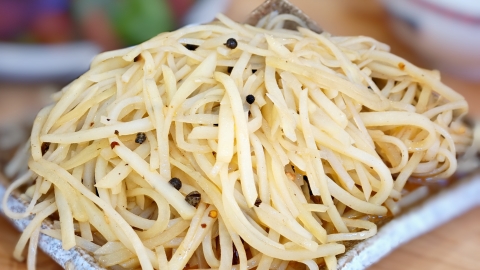Can patients with cholecystitis eat stir-fried shredded potatoes?
Generally, patients with cholecystitis can eat stir-fried shredded potatoes, but it is not recommended to consume them in large amounts. The detailed analysis is as follows:

During the stable phase of cholecystitis, it is acceptable for patients to consume a moderate amount of lightly cooked stir-fried shredded potatoes. Potatoes themselves are low in fat and rich in carbohydrates, vitamins, and dietary fiber, which provide energy for the body. The dietary fiber also promotes intestinal motility, aids digestion, and reduces gastrointestinal burden. When prepared with minimal oil, stir-fried potato shreds do not excessively stimulate gallbladder contraction and generally do not adversely affect patients with stable conditions. Additionally, they can diversify daily meals and satisfy taste preferences.
When eating stir-fried shredded potatoes, attention should be paid to controlling the amount of oil used. Opt for light stir-frying methods and avoid adding greasy or spicy seasonings such as fatty meat or chili oil. The potato shreds should be thoroughly cooked until soft to facilitate digestion and absorption, avoiding hard or undercooked pieces that may increase gastrointestinal strain. Consumption should be limited to small portions to prevent bloating caused by excessive carbohydrate intake. If a patient is experiencing an acute episode of cholecystitis or develops discomfort such as right upper abdominal pain or nausea after eating, consumption should be stopped immediately and symptoms monitored. Medical advice should be sought if necessary. In daily life, maintaining a light and regular diet remains essential.





